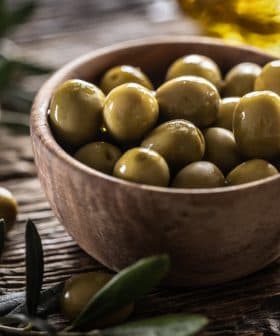Extra Virgin Olive Oil Better for Frying Fish
Researchers found that the cooking oil we choose determines the generation of toxic compounds during frying, "which can have a great influence on food safety and human health.”
 10.6K reads
10.6K readsA recent study compared the effects of frying fish with extra virgin olive oil versus sunflower oil, finding that extra virgin olive oil is a more stable cooking oil and results in a healthier lipid profile in the fish. The study also showed that there is lipid migration between the fish and the cooking oil during frying, with extra virgin olive oil showing less oxidation and degradation compared to sunflower oil.
Frying is a simple cooking method used in home and restaurant meal preparation worldwide. There are two types of frying, shallow frying and deep-frying. Deep frying results in complete food immersion in fat. While shallow frying is a partial immersion of foods in a selected fat. Shallow frying is generally seen as a healthier option.
extra virgin olive oil is a healthier choice of cooking oil for use in either of these frying methods. A recent study, published in Food Research International, aimed to establish how frying fish not only affected the lipids (fats) in the fish but also how the cooking oil changed during the shallow-frying process.
See Also:Dispelling the Myths of Frying with Olive Oil
The study looked at two different types of supermarket-bought oils,extra virgin olive oil and sunflower oil. Both oils and fish samples were submitted to two different shallow-frying conditions, a household microwave in a domestic ceramic baking dish operating at 900W; and in a domestic pan over electric heat.
The oils were first fried in the absence of food and the lipid results extracted. New oil samples were then used to fry fish fillets under the conditions outlined above, in the microwave and in a pan. Domestic temperatures were mimicked for the experiments with an oil temperature of 170°C (340°F) and a cooking time of 2.5 minutes for each fillet side.
Specifically, the fish samples were farmed gilthead sea bream and farmed European sea bass. The fish was prepared, gutted, cleaned and filleted into roughly 300 g pieces and were of similar dimensions in terms of width and length. Lipid extracts were taken from each fried fish sample. There was also fat extracted from one raw sample, acting as the control sample.
The results of the study showed that overallextra virgin olive oil is a more stable cooking oil than sunflower oil for frying fish.
Regardless of the oil used, there is a lipid migration that occurs between the fish and the culinary oil selected for cooking. For instance,extra virgin olive oil oil samples were richer in omega 3 and saturated fats after frying, and lower in oleic groups. The overall fat content of the fish dropped in all samples, from 26 to 43 g before frying to 24 to 28 g after. The results showed there was a 19 to 28 percent migration of fish lipids across to the fried oils.
The exchange occurs the other way as well. The type of lipids contained in each oil migrate to integrate with the fish lipids during cooking. For instance, fish becomes richer in oleic polyphenols when cooked with EVOO. The results showing a 15- to 25 percent migration of oil fractions migrated over to the fish fillets from culinary oils.
As expected, the sunflower oil had a smaller resistance to oxidation and degradation than EVOO. Frying or heating in the microwave causes less oil oxidation and degradation than pan-frying. However, according to the study, no thermo-oxidation was found in EVOO. The highest oxidation compounds were found in the sunflower pan-fried sea bass.
The authors concluded that “the selection of the cooking oil is of paramount importance due to its impact on the fish lipid profile and on the possible generation of toxic compounds in the oil during frying, which can have a great influence on food safety and human health.”
And it appears from their results,extra virgin olive oil is the better option of the two.









